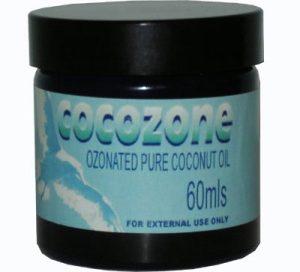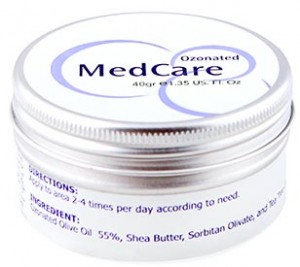The EU and Public Health
Last week we sent all our customers a newsletter on how the EU is hugely damaging your right to take natural medicines of your choice, and how your access to information and opinion on how they might help you had been restricted, also by our membership of the EU. Today we discuss how EU directives interfere with conventional medicine, and the provision of the NHS. Most of this newsletter is adapted from, and in many parts copied word for word from a speech given by Professor Angus Dalglish, an oncology doctor working in the NHS. The full speech, which contains further information can be viewed here
The EU Clinical Trials Directive
20 years ahead the NHS will not be viable in any shape or form unless we address these issues….The currrent NHS structure cannot cope….All improvements to improve patient care are thwarted by regulatory burdens. They want us to improve everything at the coalface and then shackle us and straightjacket us with this. The main problem is the blind acceptance of European Union Directives without thinking through the consequences – the law of unintended consequences.
What got me here, was my frustration with the EU Clinical Trials Directive. It was meant to be brought in to harmonise research, but it has ended up destroying academic medicine in this country – a field in which we were world leaders. This has resulted in several reports from the professional bodies [opposing this directive]. One of them, from the Academy of Medical Sciences (of which I am a fellow), have done a lovely document to the government pointing out the problems, leaving no stone unturned and we still haven’t had any kind of response to it.
Before this came in I could do all sorts of trials with simple cheap drugs vaccines etc that might improve outcomes and we could do it in academic centres. It was easy getting this done. When the EU Clinical Trials Directive was pointed out to me, I said to the government, the MHRA, the Presidents of the College of Physicisans and pathologists etc that this could be a disaster. They patted me on my head, virtually, and said “don’t worry, it won’t happen, it’s just sort of a tidying up exercise”. Then what happened when it came in? I get told I can’t do this, I can’t do that. I went to see these guys and tell them you agreed, you promised, but they’ve all gone. They’ve all retired. They’ve brought in new people who say “well, these are the rules”.
So to do a trial now, and this is no word of exaggeration, because I just tried to cost one up, it’s coming in at £2m to do a study, that previously cost about £50,000! How can you possibly justify that if you’re not a big pharmaceutical company? The label on the tin was to harmonise clinical research and protect the patient. But in reality it increasingly looks like a cartel to protect big pharma and to keep competition from generics and academics out. The result is that much clinical research is being done elsewhere, and the patients lose out. This was the thing that really got to me.
I had to go to an All Party Parliamentary Committee on Cancer care, and I said It’s absolutely pointless addressing any of these things [which I had gone to talk about] unless you get rid of The EU Clinical Trials Directive, and the patients are losing out. We used to have a world class lead on this, but now unless its the drugs companies behind it, we can’t do anything.
EU Working Time Directive and the NHS
If you think that’s bad enough, there are other European Directives that are just destroying the NHS. Until we get rid of them, we just cannot get the NHS the way we want it. Take the Working Time Directive. It limits the amount of hours that people are allowed to work in a week. But it’s impossible to do that with a health care system. But our government have said “this is how it is”. To do this, you need to plan for about 20 years, and employ three times the number of doctors we currently have overnight! Because of this directive, people aren’t being trained properly. I don’t know any surgeon now who would want to be operated on by one of their young colleagues. Someone phoned me when they heard I was giving this speech, and said “It’s even worse than you think. We’ve just appointed a consultant colo-rectal surgeon who has only done four colectomy (removal of the colon) operations in his life”. We did this before we (even) became registrars! It has inflicted utter chaos on the health care system.
The EU freedom of movement directive, and your health.
The freedom to move from one country to another is a great ideal. If you’ve got a set amount of doctors, nurses etc how can you then deliver the service for a demand which goes up exponentially? In reality when one country provides everything free at the point of service, including treatments which are unavailable altogether in about a third of EU countries, how can you blame people from coming here from abroad to get treatment? Of course people from outside will want to access this if they can. Merion Thomas, an NHS surgeon recently wrote about the flagrant abuse of the NHS by those who are not entitled to it and the massive savings that would be made if this was stopped. The obvious solution is that the NHS should only be free at the point of service to those that have paid into it. Others will have to take out insurance or pay. What we are heading towards is a situation where EU Freedom of Movement directives, and the resultant health tourism cause so much pressure on the NHS that no amount of money put into it would maintain the service.
EU freedom of movement and free movement of doctors
This again is a great idea in theory. But this was not meant to be a loophole for foreign doctors with dubious degrees from other EU countries who are unable to communicate in English to come and work here. Now the GMC has decreed that doctors must pass an English competency test before working here? Why was this not done before? How many people had to die before this was done?
I have been asked to review a document which I thought was a joke. It was on the “shared competencies” on the EU and the NHS. I won’t go into the details, but in my final statement, I stated that in this document “the government thanked the EU for helping rearrange the deck chairs on the NHS Titanic, whilst politely ignoring the fact that they had directed the NHS to set a course straight into the nearest iceberg.” But it’s even worse than this, because we would actually implement it (EU directives). I don’t need to go into all the details, but there is nothing in existence that is so bad, so incompetently run, so hopelessly inept, that a new EU directive cannot come along and make even worse.
TTIP, Big Pharma, and the EU (this part of the newsletter is not taken from Professor Dalglish’s speech)
The transatlantic Trade and Investment Partnership is something almost nobody – even in the health industry has heard of (yet) – and most people will only do so when it is too late. Interestingly, the highly unlikely alliance of Friends of the Earth and the UK Indepedence Party are strongly opposing this deal although the three mainstream parties support it. TTIP is supposed to be a free trade agreement between the European Union (EU) and the United States (USA), which all sounds rather nice in theory. But the reality is less nice.
Firstly it will be a disaster for our NHS as it will allow back door privitisation, and favour the interests of the pharmaceutical companies over and above the public good and public health. Secondly, and even more ominously it will restrict, and possibly end entirely the controls we have over genetically modifed (GM) food in our fields and shops.
Regarding the first point, as stated on one web site “The analysis of the 5 most worrying proposals of the pharmaceutical industry’s wish list for the EU-US trade agreement reveals a real threat to European public health systems and democracy. A report by the Commons Network and civil society partners shows that the pharmaceutical industry’s wish list for the TTIP is detrimental for public health, will increase the cost of medicines and undermines democratic processes.”
This agreement is being negotiated by the EU (supposedly on our behalf) and we will be forced to abide by what they agree. That’s without any consultation with, or accountablility to the British people. We believe this is unethical and unconscionable.
Conclusion
We are not here to tell you how to vote. However it our our job as a health company to talk about health, as we see it. In this newsletter we have explained our view that the UK’s membership of the EU is doing enormous damage to the quality of health provision you are likely to get if you need to see someone on the NHS. Other problems, such as the disastrously unsuccessful PFI contracts brought in by Labour, and the equally catastrophic re-structuring of the service away from clinicians and towards management brought in by the current government need addressing too.
However as Professor Dalglish concluded in his speech on the future of the NHS, based on his experience as an NHS clinician “First we must address the negative effects of the EU directives, leave the EU or completely renegotiate. This is not the elephant in the room but the dinosaur in the kitchen!”. As a Professor of Medicine, I think he knows what he is talking about, and my vote will be influenced by this situation, as well as by the incredible damage I am seeing done to the natural health industry discussed in our last newsletter.
If your health and freedom is important to you (and let’s face it, your state of health and personal liberties are pretty fundamental to your quality of life) we advise you to carefully consider all of the above in your voting decisions next month.




